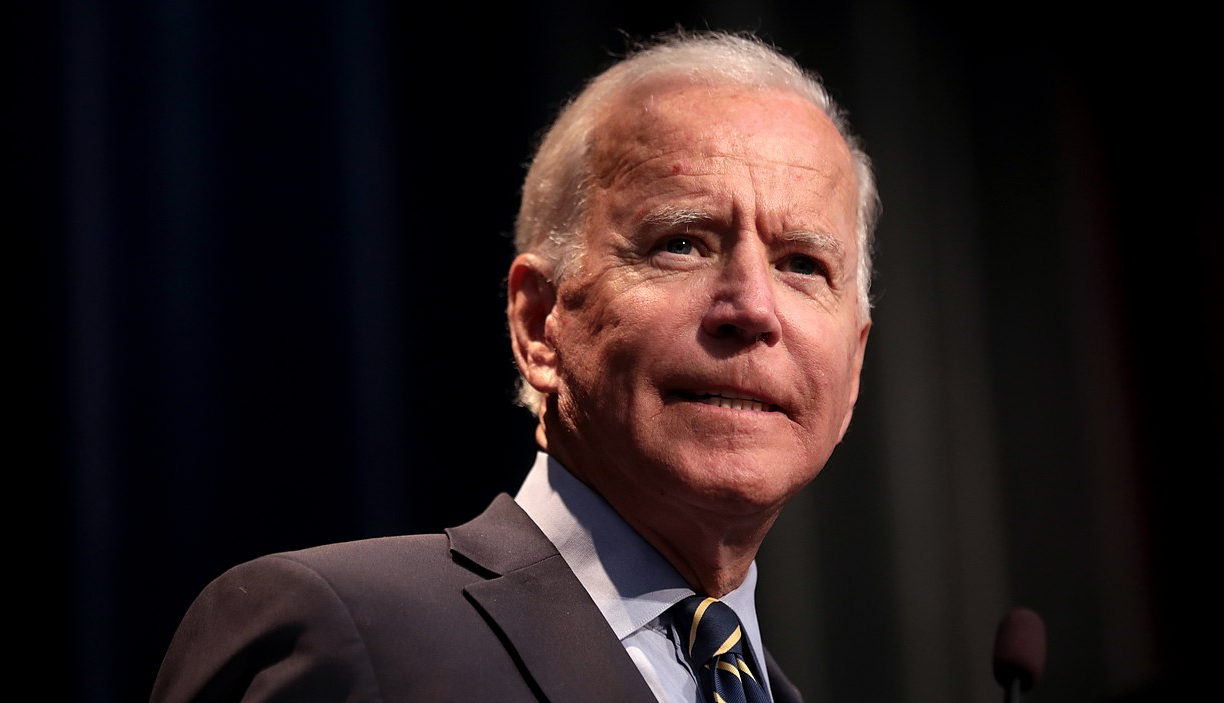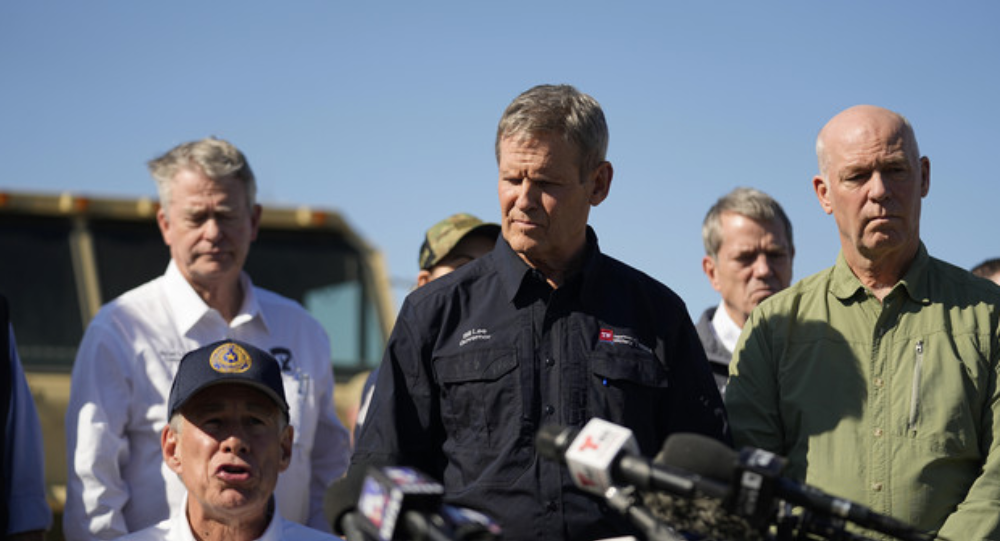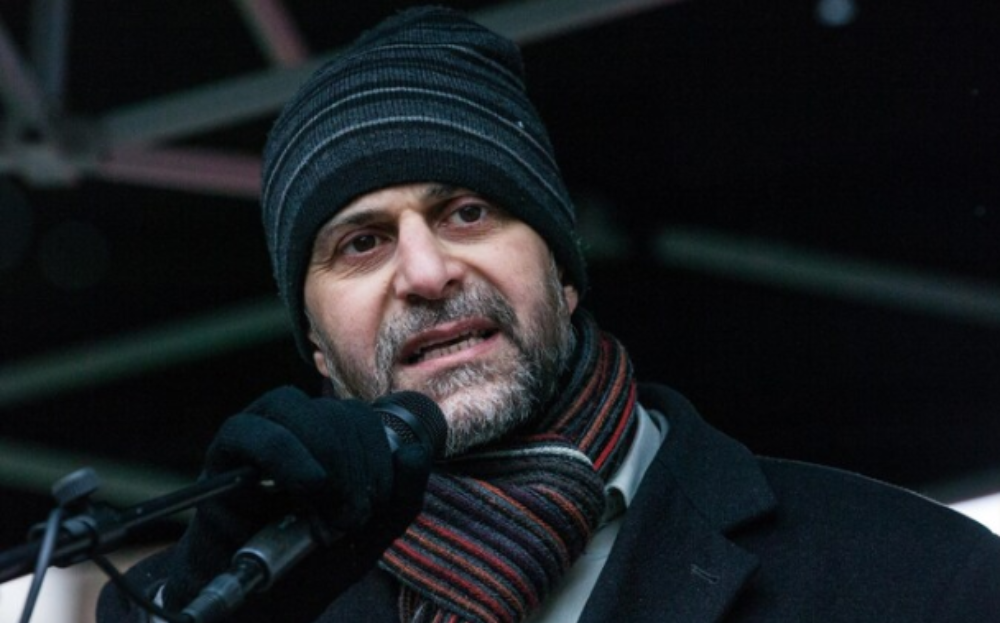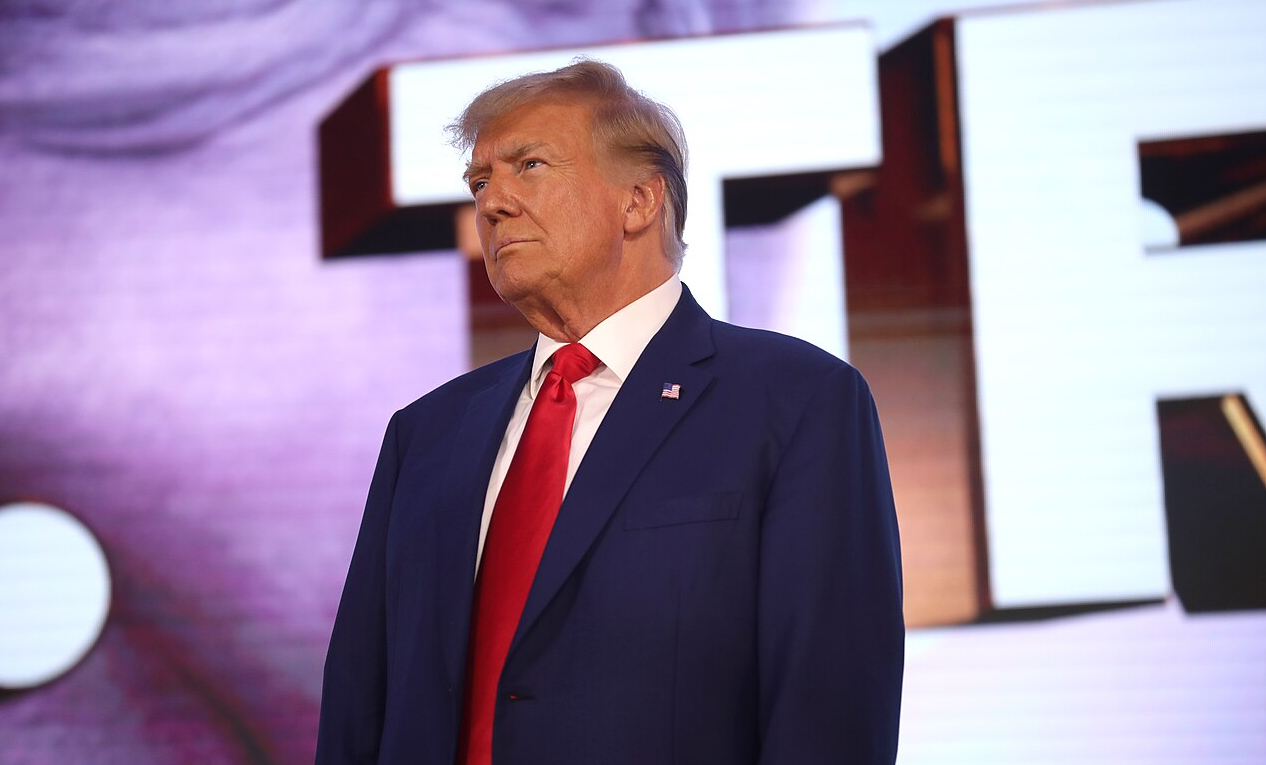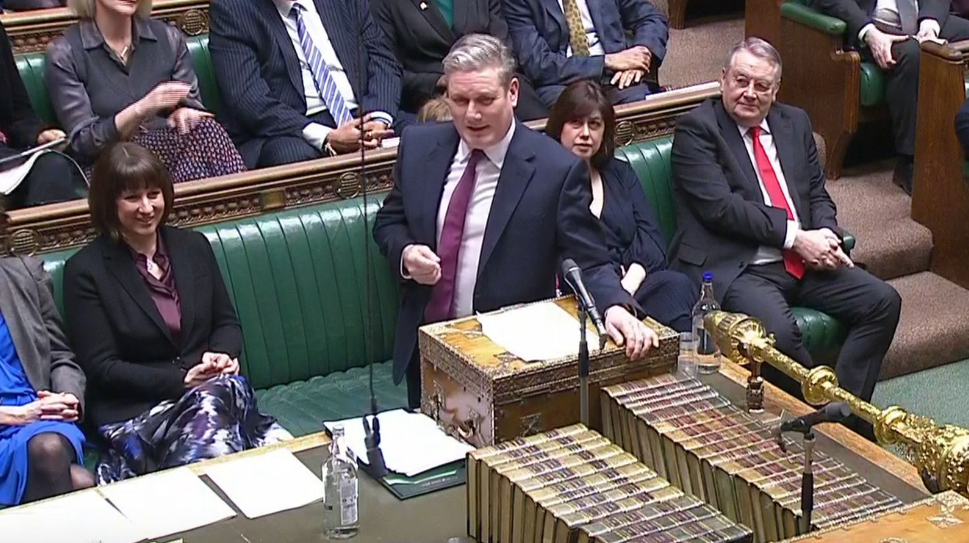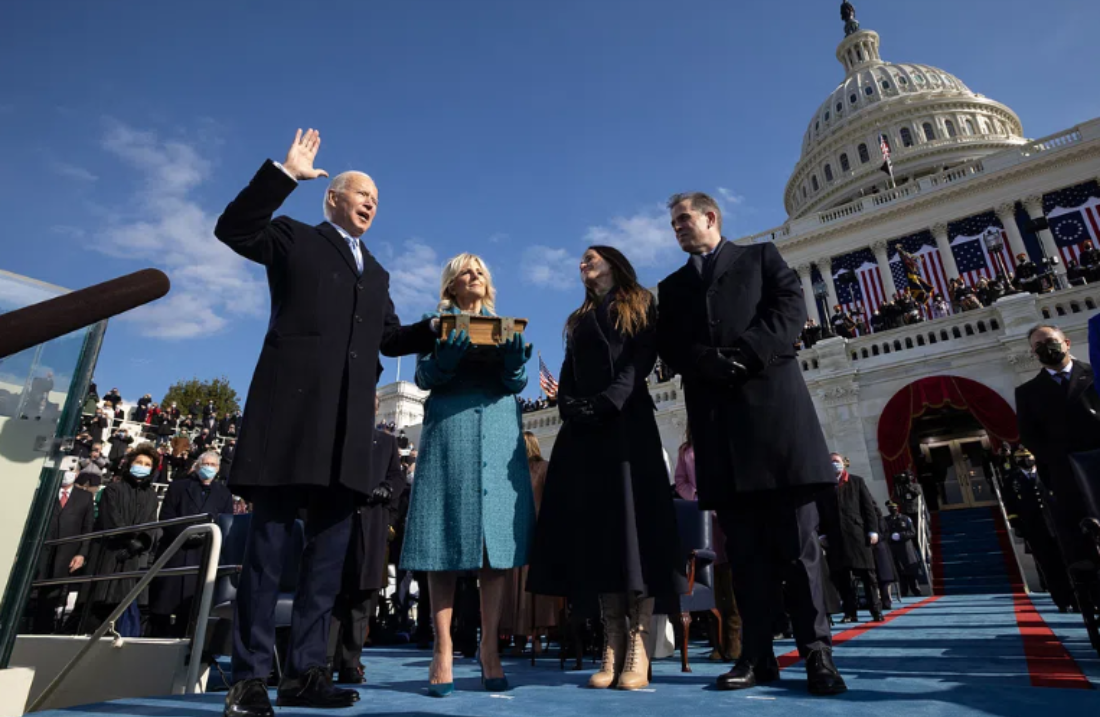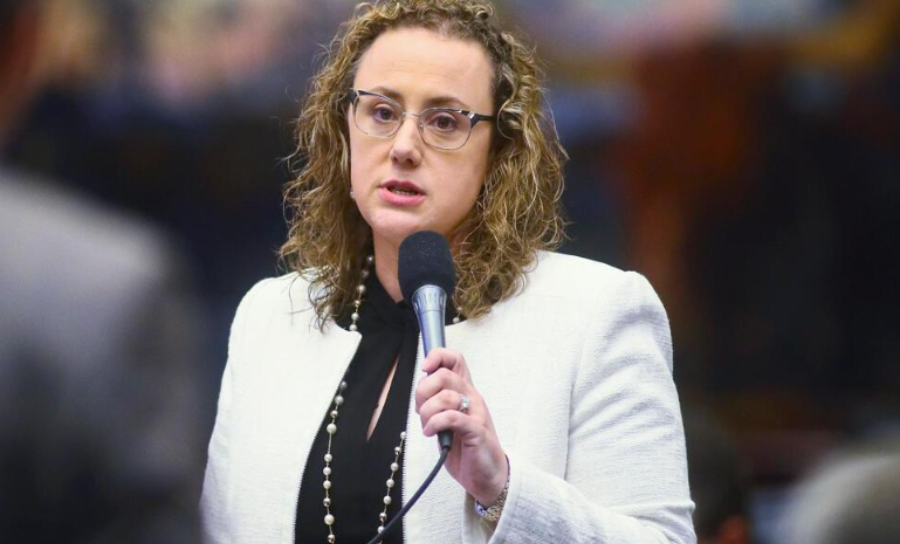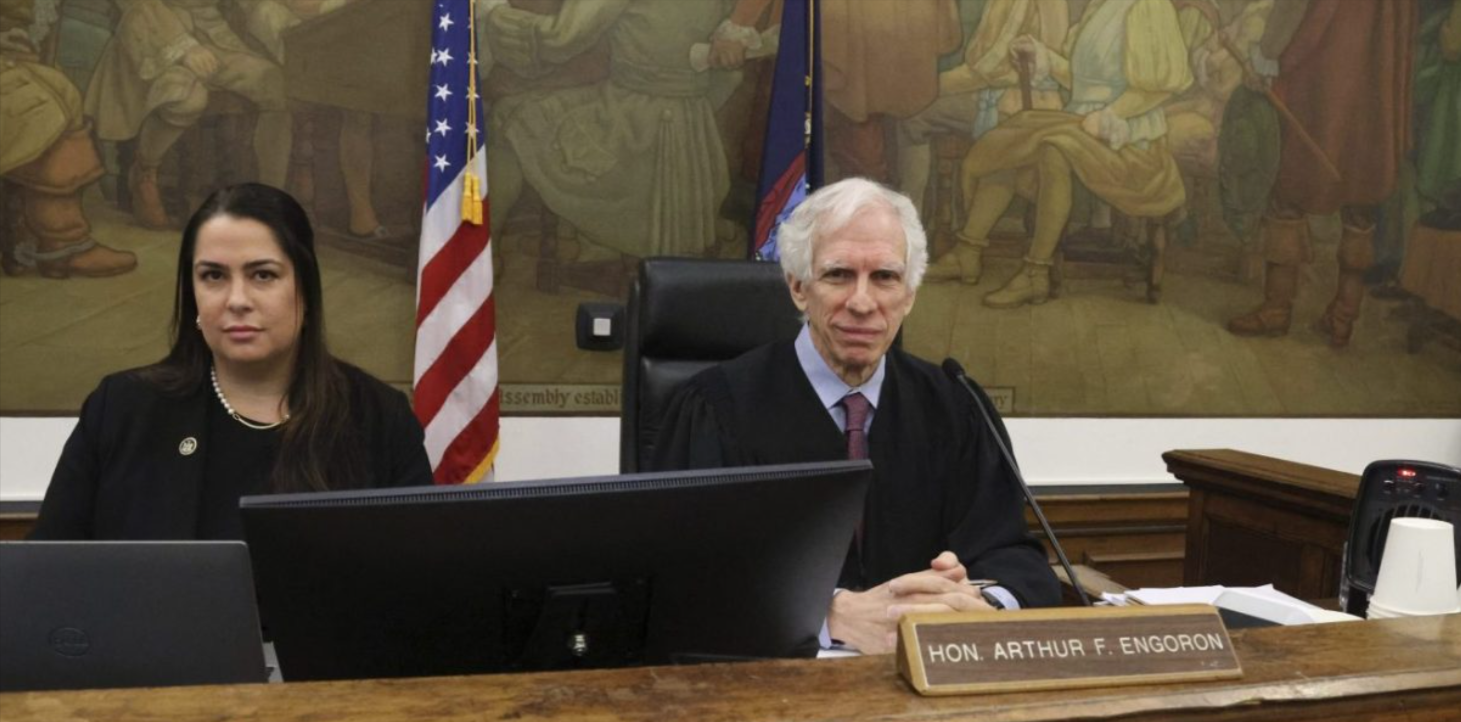-
Posts
10,051 -
Joined
-
Last visited
Content Type
Events
Forums
Downloads
Quizzes
Gallery
Blogs
Everything posted by Social Media
-
Has enough actually been done to tackle the fact that many Islamist fundamentalists with bad intentions live and walk among us? In the aftermath of Sir David Amess's tragic death at the hands of an Islamist extremist, the specter of religiously motivated violence has cast a long shadow over British politics. As his successor, Anna Firth, reflects on the harrowing events surrounding his murder and the broader implications for democracy, her words resonate with a sense of urgency and concern. Firth's tenure as a Member of Parliament for Finchley and Golders Green has been marked by both personal and professional challenges, as she grapples with the ever-present threat of extremist violence. Mike Freer's decision to step down due to the relentless targeting by Islamist extremists underscores the severity of the situation, with his office being firebombed and Firth narrowly avoiding a similar fate to her predecessor. In the face of such brazen acts of terrorism, Firth questions whether enough is being done to address the underlying threat posed by Islamist fundamentalism. She highlights the reluctance to confront this issue head-on, citing fears of being labeled as racist or Islamophobic. This hesitation, she argues, only serves to embolden extremists and undermines efforts to safeguard democracy. Firth's concerns are compounded by recent events in the House of Commons, where the Leader of the Opposition, Sir Keir Starmer, reportedly pressured the Speaker to allow a vote on a contentious motion related to the conflict in Gaza. This apparent capitulation to external pressure raises troubling questions about the integrity of parliamentary proceedings and the influence of extremist groups on political decision-making. The scenes outside Parliament on that fateful day serve as a stark reminder of the challenges facing lawmakers like Firth, who must navigate a fraught political landscape while ensuring their own safety and security. The emergence of a vocal and aggressive mob, fueled by a toxic blend of Islamist ideology and far-left activism, threatens to undermine the very foundations of democracy. As Firth reflects on her experiences both inside and outside of Parliament, she recounts encounters with hostility and intimidation, including a disturbing confrontation at a local mosque and a targeted smear campaign in her constituency. These incidents, she argues, are symptomatic of a broader trend towards intolerance and extremism that must be addressed with urgency and resolve. Despite the gravity of the situation, Firth remains steadfast in her commitment to upholding democratic principles and resisting efforts to silence dissent. She echoes calls for greater police intervention to combat extremist threats and advocates for a more proactive approach to countering radicalization and hate speech. In the wake of Sir David Amess's tragic death, Firth's voice serves as a poignant reminder of the challenges facing lawmakers in an increasingly volatile political climate. Her courage and resilience in the face of adversity embody the spirit of democratic values, and her call to action resonates with a sense of urgency that cannot be ignored. As she continues to navigate the complex landscape of British politics, Firth remains steadfast in her commitment to defending democracy and confronting extremism head-on. 27.02.24 Source
-
The dynamics within the Trump family, particularly between Melania Trump and Ivanka Trump, have long been a subject of speculation and intrigue. Now, a new book by Katie Rogers sheds light on the alleged power struggle between the former first lady and the president's daughter, revealing a four-year battle for influence and recognition within the White House. According to Rogers' forthcoming book, titled "American Woman: The Transformation of the Modern First Lady, from Hillary Clinton to Jill Biden," Melania and Ivanka engaged in an internal power struggle from the outset of Donald Trump's presidency. The conflict reportedly stemmed from Ivanka's initial attempts to assume the role of first lady in Melania's absence, as the former first lady remained in New York to allow her son Barron to finish the school year. Ivanka's plans to overhaul the Executive Mansion's East Wing and expand her role to encompass the entire First Family's needs were met with resistance from Melania, who saw it as a direct challenge to her position. Despite President Trump's endorsement of Ivanka's involvement in first lady duties, Melania firmly rejected the idea, setting the stage for a tense standoff between the two women. The strained relationship between Melania and Ivanka was further exacerbated by their divergent approaches to public appearances and media coverage. Melania's infamous "I really don't care, do you?" jacket, worn during a visit to detained migrant children at the southern border, was interpreted by some as a deliberate message aimed at her stepdaughter. Sources within the administration suggest that Melania was keenly aware of the media's portrayal of her and closely monitored her public image, leading to heightened tensions between the two women. Beyond their personal differences, Melania's focus on her financial security also contributed to the rift between her and Ivanka. Meetings with legal teams to address pre- and post-nuptial agreements occupied much of Melania's time during her tenure as first lady, highlighting her determination to protect her assets and financial independence. While Melania's office confirmed the existence of these meetings, they denied specific details regarding prenuptial agreements, emphasizing Melania's successful career and financial autonomy prior to her marriage to Donald Trump. Despite the acrimony between Melania and Ivanka, the book suggests that Melania has maintained a cordial relationship with her successor, Jill Biden, exchanging birthday cards since leaving the White House. As speculation mounts about Melania's role in her husband's re-election campaign, her absence from the campaign trail has only fueled further intrigue about her future plans. As the political landscape continues to evolve, Rogers' book offers a revealing glimpse into the complex dynamics of the Trump family and the inner workings of the White House during Donald Trump's presidency. With its insights into the personal and professional rivalries that shaped Melania's time as first lady, "American Woman" promises to be a compelling exploration of power, ambition, and influence in modern politics. 27.02.24 Source
-
- 1
-

-
As the countdown to November's pivotal election inches closer, the Biden administration finds itself grappling with a mounting sense of frustration over its portrayal in the media. With persistent concerns swirling about President Biden's fitness for office, exacerbated by his age, his camp is pushing back against what they perceive as biased coverage that disproportionately focuses on his occasional verbal slips and questions about his capacity to lead. This discontentment with media coverage is not a new phenomenon in American politics, but rather a recurring theme that has plagued both Democratic and Republican administrations alike. From the controversies surrounding Hillary Clinton's private email server to the relentless scrutiny of former President Trump's every move, the media's role in shaping public perception has become increasingly contentious and fraught with partisan undertones. For Biden and his allies, the frustration lies in what they perceive as a double standard in the way the media covers him compared to his opponents. While Biden faces relentless scrutiny over his age and occasional gaffes, his likely opponent in the upcoming election, Trump, is embroiled in legal troubles and facing numerous felony charges. Yet, the media's spotlight appears to linger more on Biden's slip-ups than on Trump's legal woes, fueling accusations of bias and unfair treatment. The release of a special counsel report earlier this month, which concluded that Biden would not face charges for his handling of classified documents, only served to exacerbate tensions between the administration and the media. While the report offered vindication for Biden, it also contained passages questioning his ability to recall key events and raised concerns about his retention of classified materials. The White House took issue with the media's focus on these aspects of the report, arguing that they misrepresented the findings and undermined Biden's credibility. In response to what they perceive as unfair coverage, Biden's camp has taken a more confrontational approach, publicly criticizing media outlets and calling attention to what they view as sensationalist attacks on the president's age. While this may be a departure from the administration's previous strategy of downplaying media criticism, some believe that a more assertive stance is necessary to combat negative perceptions and bolster Biden's image as a strong and capable leader. However, critics argue that Biden's occasional verbal slips and missteps are fair game for media scrutiny, especially given his age and the demands of the presidency. While Biden has sought to downplay concerns about his cognitive abilities, his occasional gaffes have raised questions about his fitness for office and whether he is up to the task of leading the nation. In the age of social media and 24-hour news cycles, optics matter more than ever, and Biden's camp is keenly aware of the importance of shaping public perception. As the 2024 election looms on the horizon, Biden and his allies are acutely aware of the stakes involved and the need to effectively navigate the media landscape to ensure a favorable outcome. Ultimately, the battle between the Biden administration and the media underscores the broader challenge of balancing transparency and accountability with the demands of political leadership. While every president must contend with media scrutiny, Biden's camp is making it clear that they will not hesitate to push back against what they view as unfair portrayals in their quest to shape the narrative and secure another term in office. 26.02.24 Source
-
Labor's Moral Obligation in Confronting Anti-Semitism Amidst Global Unrest In the current landscape of Australia, a profound ethical dilemma has emerged, highlighting the stark disparity between political rhetoric and societal reality. Against the backdrop of Nationals senator Perin Davey's inconsequential indiscretion of sipping wine in Parliament House, a tidal wave of anti-Semitic sentiment has been steadily rising, engulfing Jewish communities across the nation. This disconcerting dichotomy underscores a broader issue plaguing the nation's moral compass, where discussions of integrity and ethics appear to be disconnected from the palpable racism and prejudice prevalent in daily life. Foremost among the political actors grappling with this moral crisis is the Labor Party, renowned for its purported commitment to moral rectitude. However, recent events have exposed a troubling blind spot within the party, particularly concerning the escalating global wave of anti-Semitism and its infiltration into Australian society. Despite Leader Anthony Albanese's reactive responses to instances of anti-Semitism, it appears that the party's approach is more focused on managing the electoral fallout rather than addressing the underlying social malaise with proactive and moral leadership. Albanese's hollow pledge last November to prevent anti-Semitism from taking hold in Australia rings hollow in the face of the pervasive anti-Semitic infiltration that has already taken root. Labor's reluctance to acknowledge the gravity of the situation and its failure to confront the issue head-on reflects a dangerous complacency that only serves to perpetuate the problem. In contrast to its proactive stance against the threat posed by figures like Pauline Hanson in the 1990s, the party's response to the current, more insidious brand of anti-Semitism appears tepid and ineffectual. The significance of October 7 cannot be overstated, as it marked a pivotal moment both for Israel and for Western democracies, unleashing a virulent strain of anti-Semitism with deep-seated roots. The subsequent surge in anti-Israel sentiment across various sectors of Australian society, including academia, unions, and the media, underscores a broader ideological shift within the progressive left, where hostility towards Israel has become a prevailing orthodoxy. This convergence of anti-Zionism with anti-Semitism represents a dangerous fusion that threatens to further exacerbate tensions and deepen societal divisions. Labor's failure to grasp the gravity of the situation and its reluctance to confront the ideological underpinnings of anti-Semitism only serve to embolden its proponents. While Albanese has intermittently condemned anti-Semitism, the party's overall response has been lackluster, reflecting a misguided belief that low-key statements will suffice to address the issue. Such passive indifference only serves to compound the problem, leaving the Jewish community in Australia vulnerable and exposed during a time of unprecedented crisis. In the face of mounting anti-Semitic rhetoric and actions, the Labor Party must recognize its moral obligation to take decisive action. This entails more than just issuing condemnatory statements; it requires a concerted effort to combat the root causes of anti-Semitism and promote a culture of tolerance and inclusivity. Failure to do so not only undermines the party's moral credibility but also perpetuates the cycle of bigotry and hatred that threatens to tear at the fabric of Australian society. As the nation grapples with the resurgence of anti-Semitism, Labor must rise to the occasion and demonstrate moral leadership in confronting this pervasive threat. The time for passive indifference is over; now is the time for decisive action and unwavering commitment to combating hatred and prejudice in all its forms. Anything less would be a betrayal of the values and principles upon which the party claims to stand. 26.02.24 Source Anti-Semitism becoming ‘trendy’ among the left in Australia
-
Republican governors have firmly rejected President Biden's plea for support in reviving the collapsed bipartisan border deal, emphasizing their dissatisfaction with the administration's approach to immigration. At a recent meeting with a bipartisan group of governors, Biden discussed his exploration of executive actions to address the surge in border crossings but expressed frustration with potential legal obstacles. He urged governors to lobby their congressional representatives to resurrect the failed border bill, which fell apart amid opposition from former President Trump and congressional Republicans. However, Republican governors have pushed back against Biden's appeal. North Dakota Governor Doug Burgum remarked that while the sales pitch was made, he doubted that any minds were changed among the governors. Montana Governor Greg Gianforte, who previously criticized Biden's handling of immigration, expressed disappointment with the meeting at the White House and reiterated his belief that the border could be controlled through executive action. Oklahoma Governor Kevin Stitt echoed these sentiments, calling on Biden to reinstate the "remain in Mexico policy" and dismissing Biden's explanations as mere excuses. Utah Governor Spencer Cox, a Republican, noted that Biden did not specify the executive actions he was considering and suggested that the president was frustrated by the legal constraints he faced. Despite the partisan divide, Democratic governors supported Biden's efforts to address the border crisis. Colorado Governor Jared Polis emphasized the importance of securing the border and controlling immigration flow, while Democratic North Carolina Governor Roy Cooper expressed hope that bipartisan support for the legislation could still be achieved. Overall, the rejection of Biden's plea by Republican governors underscores the ongoing political deadlock on immigration issues, with both parties offering contrasting perspectives on how to address the situation at the southern border. 26.02.24 Source
-
The Metropolitan Police in London has severed ties with Mohammed Kozbar, a prominent mosque chairman, after a social media post from late January raised concerns about his views. Kozbar, who was previously praised as an advisor, faced scrutiny after his past praise for the founder of Hamas, a designated terrorist organization, resurfaced. The decision to end engagement with Kozbar comes after a series of revelations regarding his online activity. In addition to his previous endorsement of Hamas's founder, Kozbar recently "liked" a post by Dr. Wahid Shaida, a former leader of Hizb ut-Tahrir, another extremist group. This raised further questions about Kozbar's suitability as an advisor to law enforcement agencies. The Metropolitan Police emphasized the importance of working with faith and community advisor groups to address crime and social issues. However, they stressed the need for these groups to uphold principles of mutual respect and inclusivity. Kozbar's recent social media activity, including sharing a video disseminating conspiracy theories about Israeli influence, was deemed incompatible with this ethos. Kozbar has defended himself against accusations of extremism, stating that his comments about the founder of Hamas were made before the organization was proscribed. He has also emphasized his condemnation of violence against civilians and his support for the Palestinian cause. This development reflects a broader trend of scrutiny over individuals associated with extremist views within community leadership roles. The Metropolitan Police's decision to cut ties with Kozbar underscores the importance of ensuring that advisors uphold values of inclusivity and respect while collaborating with law enforcement agencies. 26.02.24 Source
-
Black leaders and the Democratic National Committee (DNC) have strongly condemned former President Trump for what they describe as "racist" comments made at the Black Conservative Federation (BCF) annual gala in South Carolina. During his speech, Trump suggested that his legal troubles had garnered him support from Black voters across the country, claiming that they viewed him as a victim of discrimination. He also mentioned that Black Americans had "embraced" his mugshot and asserted that he knows Black people because they built his buildings. These remarks sparked outrage among Black leaders, with Derrick Johnson, president of the NAACP, denouncing Trump's statement as delusional and racist. Mondale Robinson, founder of the Black Male Voter Project, echoed this sentiment, stating that Trump's comments would not resonate well with Black men and describing them as "absolutely racist." Trump, who is facing numerous criminal charges and civil lawsuits, has been attempting to court Black voter support ahead of the upcoming general election. However, his efforts have been met with skepticism and criticism from some Black voters, who view his overtures as insincere and opportunistic. The DNC also condemned Trump's remarks, dismissing them as "tired tropes" and emphasizing that they would not win over Black voters who have experienced economic hardships under Trump's leadership. Sarafina Chitika, the DNC's national press secretary, characterized Trump's ideas as "corny and racist." In addition to criticizing Trump's comments, the DNC highlighted the accomplishments of President Biden and Vice President Harris in addressing issues important to Black voters, such as record low Black unemployment and investments in Historically Black Colleges and Universities (HBCUs). Trump's speech also included accusations against Biden, whom he labeled as a "nasty and vicious racist." In response, the Biden-Harris campaign issued a scathing rebuke, calling Trump "an incompetent, anti-Black tyrant" and highlighting his history of racially insensitive remarks and policies. Jasmine Harris, Black Media Director for the Biden-Harris re-election campaign, emphasized that Black Americans are aware of Trump's track record and will not be swayed by his attempts to appeal to them. She concluded by asserting that Black voters will reject Trump in the upcoming election. 26.02.24 Source
- 1 reply
-
- 1
-

-
Labour leader Sir Keir Starmer has accused Prime Minister Rishi Sunak of harboring extremists within the Conservative Party, following the suspension of Tory MP Lee Anderson over Islamophobic remarks. Starmer criticized Sunak's leadership, labeling it as weak and suggesting that it enabled Anderson to act without consequence. The suspension of Anderson came after he made derogatory comments about London Mayor Sadiq Khan, prompting swift action from the Conservative Party. However, Starmer questioned Sunak's judgment in appointing Anderson as deputy chairman of the party, highlighting a pattern of what he deemed as extremist behavior within Tory ranks. In a statement, Starmer emphasized the need for Sunak to confront and address the presence of individuals with extremist views within his party. He pointed to instances where other Conservative MPs had remained silent on issues of extremism or had made inflammatory statements, suggesting that Sunak's leniency allowed such behavior to persist unchecked. Sunak, in response, released a statement condemning threats and intimidation against MPs amid heightened tensions surrounding the Israel-Hamas conflict. However, his statement notably omitted any direct reference to Anderson or his remarks. This omission raised eyebrows and led some to question Sunak's commitment to addressing Islamophobia within the party. The incident underscores the challenges facing Sunak as he attempts to maintain unity within the Conservative Party while also addressing concerns about extremism and intolerance. With divisions within the party becoming increasingly apparent, Sunak faces pressure to take decisive action to address these issues and uphold the values of inclusivity and respect within British politics. 26.02.24 Source
-
In a resounding victory, Donald Trump emerged triumphant over Nikki Haley in the South Carolina Republican primary, dealing a significant blow to Haley's presidential aspirations and bolstering Trump's path to the nomination. The Associated Press swiftly declared Trump the winner as polls closed, signaling his substantial victory in Haley's home state. This outcome underscores Trump's widespread support among South Carolina Republicans and highlights the challenge Haley faces in securing the nomination. Addressing jubilant supporters in Columbia, Trump celebrated the unity within the Republican Party and expressed his gratitude for the overwhelming support. Having secured victories in key early voting states like Iowa, New Hampshire, and Nevada, Trump's dominance in South Carolina further solidifies his frontrunner status. For Haley, a former South Carolina governor and Trump's ambassador to the United Nations, the defeat represents a setback in her bid for the presidency. Despite her determination to continue the race, Haley faces mounting obstacles, including consecutive losses and skepticism about her ability to defeat Joe Biden in the general election. Undeterred by her recent defeats, Haley reaffirmed her commitment to the campaign, citing frustration with the country's direction and her determination to address it. She announced plans for a significant national advertising campaign and a rigorous schedule of rallies and events across key primary states. However, Trump and his allies remain skeptical of Haley's chances, labeling her campaign as a "Never Trump operation" and questioning her reliance on wealthy donors to sustain her bid. Despite these challenges, some view Haley's candidacy as a potential glimpse into the future of the Republican Party and speculate about her prospects in future elections. As Trump shifts his focus to the general election contest against Biden, his campaign confronts legal challenges and mounting financial pressures. Nonetheless, Trump's enduring support among Republicans remains steadfast, bolstered by his aggressive campaign strategy and continued dominance within the party. With Trump's victory in South Carolina, the path to the Republican nomination becomes clearer, while Haley's presidential aspirations face a daunting road ahead. As the primary season progresses, the dynamics of the race are likely to evolve, shaping the future of the Republican Party and the broader political landscape. 25.02.24 Source
-
The second anniversary of Russia's invasion of Ukraine marks a sobering realization for Western powers: the initial optimism of repelling Moscow's advances has given way to a strategic impasse. Despite possessing the capability to support Ukraine with weapons, technology, and intelligence, the United States is perceived in Europe to have wavered in its resolve. Conversely, while European nations demonstrate the will to assist Ukraine, they lack the military capacity to effectively counter Russia's aggression. This predicament underscores the complexities facing Ukraine and its NATO allies. Previously, there was optimism that European and American support, including military aid and intelligence sharing, could push back Russian forces. However, harsh lessons have emerged over the past year. Sanctions intended to cripple Russia's economy have faltered, and Moscow's military expenditure has surged, buoyed by income from oil exports. As hopes for a negotiated settlement dwindle, President Vladimir Putin appears determined to prolong the conflict, betting on domestic political shifts in the United States and potential vulnerabilities in Ukraine's defense funding. Despite NATO's expansion and increased defense spending among member states, concerns persist about the alliance's ability to deter future Russian aggression. At the heart of the stalemate lies the absence of viable negotiation prospects. While earlier discussions explored the possibility of a negotiated settlement, current debates in the U.S. Congress and waning optimism about Ukraine's ability to withstand prolonged conflict have shifted priorities. Some voices advocate for a more pragmatic approach, emphasizing the need for Ukraine to secure its long-term economic viability and democratic future, even if it means conceding territory. Amidst these deliberations, European public opinion is shifting, reflecting growing concerns about Ukraine's ability to resist Russian advances. Despite significant financial pledges, European efforts to bolster Ukraine's defense capabilities face logistical challenges and disagreements over arms procurement and funding distribution. The evolving geopolitical landscape demands a reassessment of strategies aimed at deterring Russian aggression. Admitting past shortcomings and charting a new course forward may offer a more effective approach than empty self-congratulation. Ultimately, the fate of Ukraine and the stability of the region hinge on the collective resolve of Western powers to confront the challenges posed by Russia's belligerence. 25.02.24 Source
-
In a contentious decision, the town of Westlock, Alberta, has voted to ban Pride flags and rainbow crosswalks on municipal property. The plebiscite resulted in a slim majority of 663 votes in favor of flying only government flags and painting crosswalks in a white striped pattern, with 639 opposed. Mayor Jon Kramer expressed disappointment but emphasized the town's commitment to embracing marginalized groups, including the LGBTQ community. Despite the setback, Kramer pledged to continue finding ways to support diversity and inclusion. Last year, Westlock's first Pride crosswalk was painted by a local gay-straight alliance, but the decision faced pushback, leading to the recent plebiscite. The vote's outcome cannot be reversed by the council without another plebiscite. The Westlock Neutrality Team, which initiated the petition for public neutrality, did not immediately respond to requests for comment. However, Kristopher Wells, an expert in LGBTQ issues, voiced concern for the youth who contributed to the crosswalk, stressing that removing symbols of LGBTQ support does not erase LGBTQ people from the community. Wells highlighted a broader trend of anti-LGBTQ sentiment in Canada, citing recent policies affecting transgender individuals in Alberta, Saskatchewan, and New Brunswick. Alberta's plan to introduce parental consent requirements for name and pronoun changes at school and restrictions on gender affirmation treatments has sparked controversy. Janis Irwin, Alberta Opposition NDP critic for LGBTQ issues, expressed solidarity with those affected by the vote, emphasizing the ongoing fight for inclusivity in the province. Despite the ban on Pride symbols, Mayor Kramer remains committed to fostering inclusion in Westlock. He cited initiatives such as wheelchair ramps, an accessible playground, and a Filipino story time at the library as examples of the town's efforts to embrace diversity. Kramer stressed that while flags and crosswalks may be restricted, the pursuit of inclusion remains a creative endeavor, and the town will continue exploring alternative avenues to support all members of the community. 25.02.24 Source
-
A left-wing anarchist from Liverpool, Jacob Graham, has been convicted of terrorism offenses after creating and sharing a bomb-making manual, expressing a desire to kill at least 50 people, and engaging in extremist rhetoric. Graham, 20, authored a manual named the "Freedom Encyclopaedia," dedicated to "terrorists past and future, anarchists etc," and concealed bomb-making chemicals in a secluded woodland area. His "My Plan" document outlined intentions to target government buildings and politicians' residences to cause significant harm. Additionally, Graham produced 138 videos demonstrating explosives and discussed themes like "Judgement Day" and "standing up for working-class people." Disturbingly, his bedroom wall featured a picture of a car bomb with a menacing message aimed at politicians. While Graham was acquitted of planning a terrorist attack, he was found guilty of preparing acts of terrorism by crafting the Freedom Encyclopaedia, disseminating terrorist publications, and possessing documents conducive to terrorism. The evidence against Graham revealed his procurement of chemicals, experimentation with explosives, and plans to manufacture a 3D-printed assault rifle. His admiration for the Unabomber, Theodore Kaczynski, and aspirations to continue his violent legacy further underscored his dangerous mindset. Graham's ideology stemmed from anti-government sentiments and ecological concerns. He identified as "left-wing" and "more like an anarchist," citing dissatisfaction with centralized control and advocating for environmentalism and social justice. During his trial, Graham articulated grievances against government policies, pandemic management, and socio-economic inequalities. His radicalized views, expressed through video diaries, threatened violence against institutions and individuals, including his college. The case highlights the dangers of extremist ideologies and the potential for radicalization among young individuals. Graham's conviction serves as a stark reminder of the importance of countering extremist narratives and safeguarding communities against terrorism. 25.02.24 Source
-
In a recent development, the Justice Department has implicated a former FBI informant, Alexander Smirnov, in disseminating misinformation with potential Russian involvement to undermine President Joe Biden. This revelation has reignited debates over the extent of Russian influence in promoting unverified allegations regarding Joe and Hunter Biden's dealings in Ukraine. The Justice Department's accusation against Smirnov alleges that he fabricated a story about Joe Biden and Hunter Biden receiving $5 million bribes, which was later debunked by the department during the Trump administration. Despite this, Smirnov continued to spread falsehoods after reportedly interacting with Russian intelligence operatives. This latest episode echoes concerns raised during the 2020 election when unsubstantiated claims regarding Hunter Biden's laptop surfaced in a New York Post article. At the time, 51 former intelligence officials warned of potential Russian involvement in disseminating such information, although no direct evidence linking Russia to the laptop materials has been publicly disclosed. The former officials, including CIA veterans like Marc Polymeropoulos and John Sipher, felt vindicated by the recent allegations against Smirnov, asserting that their warnings about Russian interference were prudent. However, critics, particularly from the GOP-led House Judiciary Committee, maintain that the laptop contents were genuine and accuse the signatories of the letter of spreading false information. While the letter indeed served to deflect accusations of Biden family corruption during the election, suspicions of Russian involvement persisted, especially given Rudy Giuliani's interactions with individuals tied to Russian intelligence. Giuliani, a close associate of former President Donald Trump, provided the laptop materials to the New York Post. The emergence of the laptop materials coincided with intelligence reports indicating Giuliani's exchanges with Russian agents, further fueling concerns about foreign interference. These suspicions were compounded by Smirnov's alleged contacts with Russian operatives and his dissemination of misinformation targeting a major presidential candidate. The ongoing scrutiny surrounding Smirnov's actions underscores the broader issue of foreign interference in American democracy. As the Justice Department seeks to address the impact of false narratives on electoral processes, questions remain about the motives behind Smirnov's actions and the extent of Russian involvement in promoting divisive narratives. 25.02.24 Source
-
Negotiations aimed at securing the release of hostages held by Hamas in Gaza have taken a significant step forward following a pivotal meeting in Paris. Sources familiar with the discussions revealed that U.S., Qatari, and Egyptian officials presented a refined proposal to Israeli negotiators during the gathering, marking a potentially crucial development in the ongoing efforts to broker a deal. The new framework offers a more detailed outline, suggesting that Hamas would release approximately 40 hostages in exchange for a six-week ceasefire and the release of hundreds of Palestinian prisoners held by Israel. This proposal builds upon previous initiatives but provides a clearer roadmap for moving forward, enhancing the prospects of reaching a mutually acceptable agreement. Key figures involved in the talks included CIA director Bill Burns, Qatari Prime Minister Sheikh Mohammed bin Abdulrahman al-Thani, and Abbas Kamel, the director of Egyptian intelligence. Their participation underscores the significance and urgency of finding a resolution to the hostage situation. Following the meeting, the Israeli delegation, comprising officials from Mossad, Shin Bet, and the Israel Defense Forces intelligence, returned to Israel to brief the war cabinet. The outcome of this briefing, expected to take place over the weekend, will determine the next steps in the negotiation process. While progress has been made, the success of the proposed framework hinges on several factors. Firstly, it requires approval from the Israeli war cabinet. Additionally, Qatari and Egyptian negotiators must secure Hamas' agreement to the new terms, ensuring that all parties are committed to advancing the negotiations in good faith. The timing of these discussions is critical, with the Biden administration expressing a desire to reach a deal before the start of Ramadan, which is just over two weeks away. As such, follow-up meetings are anticipated in the coming days, with the hope of building on the momentum generated by the Paris talks. Ultimately, the renewed focus on diplomatic efforts to secure the release of hostages reflects a collective commitment to resolving conflicts through dialogue and negotiation. While challenges remain, the willingness of all stakeholders to engage in constructive dialogue offers hope for a peaceful resolution to this longstanding humanitarian issue. 25.02.24 Source
-
The Oklahoma LGBTQ+ community has faced disparaging remarks from State Senator Tom Woods, who reportedly referred to them as "filth" during a legislative forum sponsored by the Tahlequah Area Chamber of Commerce. In response to a question from an audience member about legislative focus on LGBTQ+ citizens, particularly in light of recent events involving a bullied LGBTQ+ student, Woods expressed disdain. The student, Nex Benedict, tragically passed away after an altercation at Owasso High School, sparking conversations about the need for better protection for LGBTQ+ students. Despite the sensitivity of the situation, Woods made derogatory remarks, stating, "I represent a constituency that doesn't want that filth in Oklahoma." He justified his stance by citing Oklahoma's conservative values and religious beliefs, claiming the state is a "Christian" and "moral" state. The senator's comments have drawn criticism, especially in the context of ongoing efforts to combat bullying and discrimination against LGBTQ+ individuals. The incident underscores the challenges faced by LGBTQ+ communities in conservative states like Oklahoma, where they continue to encounter hostility and prejudice. Woods, who represents Senate District 4 covering several counties along the eastern border of Oklahoma, including Adair, Cherokee, Delaware, and Sequoyah, did not respond to requests for comment on the news report. His remarks have sparked outrage among LGBTQ+ advocates and raised concerns about the treatment of marginalized communities in the state. 25.02.24 Source
-
- 1
-

-
Germany's parliament has made a historic decision, legalizing the possession and cultivation of limited amounts of cannabis for personal use. The law, passed by Chancellor Olaf Scholz's ruling coalition, allows individuals and voluntary associations to grow up to three cannabis plants and possess up to 50g of cannabis at home and 25g in public. The move comes after a contentious debate surrounding the benefits and risks of easier access to cannabis. Health Minister Karl Lauterbach emphasized the goals of cracking down on the black market and protecting children and young people. However, opposition voices, such as Christian Democrat politician Tino Sorge, criticized the measure, expressing concerns about promoting drug use. Lauterbach countered these arguments by pointing out the increasing cannabis use among young people and the potential dangers of unregulated street drugs. With an estimated 7 million regular cannabis users in Germany, the government sees the legalization as a way to ensure safer access to the drug, particularly for medicinal purposes. However, some doctors and opposition parties have raised concerns about the potential health risks, particularly for young people, citing increased accessibility and the risk of addiction. Despite opposition, the coalition government moved forward with the legalization, which will come into effect on April 1 for personal cultivation and possession, and later for licensed not-for-profit clubs. While adults will be permitted to grow and possess cannabis, consumption among those under 18 will remain forbidden. Implementation of the law will fall to Germany's 16 states, with some expressing reservations and logistical challenges. However, Lauterbach has emphasized measures to restrict cannabis use near educational institutions. Germany's decision makes it the third EU member state to legalize cannabis for personal use, following Malta and Luxembourg. Advocates hope that Germany's example will encourage other countries to reconsider their approach to cannabis legalization. As the law goes into effect, observers worldwide will monitor its implementation and its impact on Germany's society and public health landscape. 24.02.24 Source
-
- 7
-

-

-
Google's decision to halt the generation of human images with its Gemini AI tool comes in response to mounting criticism over its output, which included images that were deemed controversial and perpetuated stereotypes. Among the contentious images produced were depictions of Black founding fathers, a female pope, and gay couples when users requested images of straight couples. The move underscores the ongoing challenge faced by AI providers in ensuring that their generative tools produce unbiased and culturally sensitive results. Despite efforts to mitigate bias, such as those undertaken by Google with its Gemini tool, instances of problematic outputs continue to arise, prompting backlash and scrutiny. Elon Musk, among others, denounced Gemini's errors as "racist and anti-civilizational," while critics accused Google of adhering to "woke" ideologies. Responding to the outcry, Google acknowledged the shortcomings of Gemini and announced a temporary pause in human image generation, with plans to release an updated version in the near future. Prabhakar Raghavan, Google's senior vice president, emphasized the company's commitment to addressing issues as they arise, acknowledging that occasional errors may occur but reaffirming their dedication to taking corrective action. The broader context of AI-generated imagery reveals a persistent challenge in ensuring diversity and avoiding stereotypes. Previous missteps in the industry, such as the generation of all-white-male CEO portraits and racially insensitive classifications by image sorting algorithms, underscore the complex nature of AI training data and its potential impact on outputs. While AI creators continue to refine their models to handle ethically and socially sensitive queries more effectively, critics remain skeptical of the technology's ability to fully comprehend nuanced contexts and navigate complex ethical considerations. As AI systems evolve, they must contend with the inherent values embedded within them and navigate the diverse range of perspectives and expectations from users and stakeholders. 24.02.24 Source
-
In a significant departure from his usual political discourse, Donald Trump has weighed in on a contentious issue, expressing his support for IVF treatment availability in the wake of a controversial Alabama court ruling. The ruling, issued by the state's highest court, granted frozen embryos the same legal rights as children, prompting concerns and disruptions in fertility treatment services across the state. Trump's intervention underscores a broader trend among Republicans, with an increasing number seeking to distance themselves from the implications of the Alabama ruling. The decision has led to a pause in IVF treatment at several clinics, sparking alarm among fertility patients and providers alike. Trump's stance, articulated on his Truth Social platform, aligns with a growing sentiment within the Republican Party that supports access to IVF and fertility treatments. His vocal support comes amid fears within the party that the ruling could have electoral repercussions, particularly among suburban women and swing voters. The National Republican Senate Committee has also moved swiftly to address concerns raised by the ruling, directing candidates to express support for IVF and campaign on increasing access to fertility treatments. Internal polling conducted by Kellyanne Conway reportedly underscores the widespread popularity of access to IVF treatment among voters. The Alabama ruling has not only prompted a reevaluation of reproductive rights but has also emerged as a key issue in the upcoming election cycle. Democrats have seized upon the ruling to highlight what they perceive as a broader threat to women's rights if Republicans prevail in the November election. President Joe Biden, in a social media post, linked the Alabama decision to the 2022 ruling by the US Supreme Court, which curtailed abortion rights. The convergence of these legal developments has galvanized Democratic efforts to mobilize their base and frame reproductive rights as a central issue in the political landscape. As the fallout from the Alabama ruling continues to reverberate, it underscores the complex intersection of law, politics, and healthcare, with implications that extend far beyond the state's borders. 24.02.24 Source
-
Shamima Begum Loses Appeal Against Removal of UK Citizenship Shamima Begum, the east London schoolgirl who travelled to Syria in 2015 at the age of 15 to join ISIS, has lost her appeal against the removal of her British citizenship. The 24-year-old's legal battle is expected to continue despite the latest ruling. Background: - Begum's citizenship was revoked on national security grounds after she was found in a refugee camp in 2019. - She lost a challenge at the Special Immigration Appeals Commission (SIAC) last year but appealed to the Court of Appeal in October. Court Decision: - Dame Sue Carr, one of the appeal judges, affirmed the commission's decision and dismissed Begum's appeal. - The judge acknowledged the possibility that Begum may have been influenced by others but stated that she had made a calculated decision to align with ISIL. - The court's role was to assess the lawfulness of the deprivation decision, not to agree or disagree with its severity. Legal Representation: - Begum was represented by Samantha Knights KC, who argued that the government had failed to consider its legal duties to a potential victim of trafficking. - The Home Office, represented by Sir James Eadie KC, emphasized national security as the key aspect of Begum's case. Future Legal Steps: - Begum's legal team is likely to appeal the latest ruling, with arguments over the consequences of the judgment adjourned for seven days. - There could be a bid to appeal at the Supreme Court. Continued Legal Battle: - Gareth Peirce, one of Begum's lawyers, indicated that the legal battle will persist as long as Begum remains in the refugee camp in northern Syria. 24.02.24 Source
-
Survivors and families of victims of Hamas' October 7th attack on Israel have filed a lawsuit against the Associated Press (AP), accusing the news agency of collaborating with freelance photojournalists allegedly embedded with the terrorists responsible for the violent assault. In a federal complaint filed in the Southern District of Florida on Wednesday, plaintiffs — including dual Israeli-American citizens and Americans who were present at the Supernova music festival targeted by Hamas — are seeking damages under the Antiterrorism Act. They are represented by the National Jewish Advocacy Center, which claims that the AP's purchase of images taken during and after the October 7th attack amounts to "materially supporting terrorism." The lawsuit singles out four freelance photographers whose work was acquired and published by the AP, alleging that they are "known Hamas associates" who actively participated in the attack. Among them, Hassan Eslaiah has been particularly spotlighted, accused of being closely associated with Hamas even before the October 7th assault. Eslaiah's photos, some of the earliest from the scene of the attack, were widely disseminated. He has faced allegations of being in close proximity to Hamas militants during the attack, and a photo showing him alongside a Hamas commander has fueled suspicions about his connections to the terrorist group. Despite Eslaiah's denials of having prior knowledge of the attack or any links to Hamas, questions about his affiliations have persisted. The lawsuit accuses the AP of turning a blind eye to Eslaiah's alleged ties to Hamas and profiting from his involvement in the attack by publishing his images. It alleges that the AP was aware of Eslaiah's background but continued to engage him as a freelance photographer. These allegations against the AP surfaced shortly after the attack, when pro-Israel media watchdog Honest Reporting raised questions about the photographers' potential foreknowledge of the assault. The AP responded by denying any prior knowledge of the attack and asserting that the first images they received were taken well after the assault began. While the AP has since severed ties with Eslaiah and denied any wrongdoing, the lawsuit underscores the ongoing controversy surrounding the use of freelance journalists in conflict zones and the ethical responsibilities of media organizations. The National Jewish Advocacy Center director, Mark Goldfeder, criticized the AP's actions, arguing that media outlets cannot evade accountability for their role in supporting terrorist activities. The lawsuit signals a broader debate about the ethical standards governing journalism in conflict zones and the responsibilities of media organizations to ensure their contributors uphold journalistic integrity. As the legal proceedings unfold, the lawsuit against the AP raises important questions about journalistic ethics, accountability, and the complex dynamics of reporting in conflict zones. 24.02.24 Source
-
Trump Seeks Dismissal of Classified Documents Indictment, Citing Presidential Immunity Former President Donald Trump is moving to dismiss his classified documents case in Florida, citing presidential immunity. In court filings, Trump's attorneys argue that his designation of records as personal under the Presidential Records Act (PRA) and their removal from the White House constitute official acts protected by immunity. Key Points: - Trump's lawyers contend that the charges against him, related to the handling of classified documents, should be dismissed due to presidential immunity. - They argue that Trump is entitled to immunity for his official acts, including those related to the classification and removal of records. - Trump's legal team filed three additional motions, addressing the vagueness of the statute he was charged with, the alleged unconstitutionality of special counsel appointments, and the Presidential Records Act. - The former president's attorneys have previously indicated that they will argue the prosecution's probe into his handling of classified documents was politically motivated. - Trump and his co-defendants, Walt Nauta and Carlos De Oliveira, have pleaded not guilty to the charges. - De Oliveira also filed a motion to dismiss his charges separately. - A federal appeals court recently rejected a similar immunity argument from Trump in another case, but he has appealed that ruling to the Supreme Court. Background: - The charges against Trump stem from allegations of willfully retaining national defense information and ordering the deletion of security footage at his Florida estate. - Trump's legal team maintains his innocence and argues that the prosecution's actions are politically biased. - The outcome of this legal battle will have implications for Trump's future and his potential candidacy in the 2024 presidential election. 24.02.24 Source
-
Insights from a Russian Tourist Trip to North Korea: Accordions, Snowmobiles, and an 'Old' Plane A recent four-day tour to North Korea by a group of around 100 Russians provided a rare glimpse into the secretive country, shedding light on its everyday realities and challenging the official narrative. The trip, occurring amid strengthening ties between North Korea and Russia, showcased both the curated experiences offered to tourists and the stark contrasts they observed. Aboard the Aging Air Koryo Flight: - The tour began with a flight on Air Koryo, North Korea's only airline, from Vladivostok to Pyongyang. - Tourists complained of the plane's antiquated condition, describing it as smelling of mothballs and showing signs of wear and tear. Mangyongdae Children's Palace Visit: - Upon arrival in Pyongyang, the group visited the Mangyongdae Children's Palace, where they observed uniformed children engaging in accordion music, crafts, and concerts. - Tourists noted the controlled nature of the children's interactions with them, suggesting they were instructed not to look at the tourists directly. Sightseeing in Pyongyang: - Tourists were taken to see prominent landmarks such as statues of former leaders Kim Il Sung and Kim Jong Il, the Juche Tower, and a monument commemorating Soviet contributions to World War II. - Accommodations were provided at the Yanggakdo International Hotel, where tourists claimed restrictions on leaving the premises. Ski Resort Experience in Wonsan: - The group was flown to Masikryong ski resort, where they encountered North Korean propaganda playing on the slopes and were accompanied by personal escorts. - Despite the isolated nature of North Korea, tourists spotted Western goods like Canadian Ski-Doo snowmobiles. Reactions and Implications: - Tourists expressed disillusionment with the trip, citing moral and ethical concerns and questioning the tourist value of North Korea. - The tour underscored the strengthening alliance between Russia and North Korea, exemplified by recent exchanges between their leaders. Conclusion: The Russian tourist trip to North Korea offered insights into a country often shrouded in mystery, revealing both the orchestrated displays for visitors and the underlying realities faced by its citizens. 24.02.24 Source
-
Florida's Landmark Legislation: A Bold Move to Protect Children from Social Media Influence In a groundbreaking move, Florida lawmakers have passed a bill that could set a new standard for protecting minors from the potential harms of social media. The legislation, which awaits Governor Ron DeSantis's approval, seeks to implement one of the most stringent bans on minors' access to popular online platforms, regardless of parental consent. The bill, passed with overwhelming support in both the House and the Senate, aims to address growing concerns about the negative impact of social media on children's mental health and safety. By targeting platforms that track user activity, allow minors to upload content, and utilize addictive features, lawmakers hope to combat issues such as cyberbullying, predatory behavior, and excessive screen time among young users. Supporters of the bill argue that it is a necessary step to protect vulnerable children from the harmful effects of online platforms. Citing rising suicide rates and the prevalence of online harassment, they believe that stricter regulations are needed to safeguard minors in the digital age. However, the legislation has sparked controversy, with critics raising concerns about its potential infringement on free speech rights and parental autonomy. Opponents argue that parents, not the government, should be responsible for monitoring their children's online activities and determining what content is appropriate for them. Governor DeSantis, while acknowledging the dangers of social media, has expressed reservations about the bill's implications. He emphasizes the importance of parental involvement in regulating children's online use and has raised questions about the constitutionality of the proposed ban. Despite the debate surrounding the legislation, its passage represents a significant step towards addressing the complex challenges posed by social media in today's society. If signed into law, Florida's ban on minors' social media use could serve as a model for other states grappling with similar concerns. In the end, the goal of the legislation is clear: to protect the well-being and safety of children in an increasingly digital world. Whether it achieves this objective without infringing on individual rights remains to be seen, but one thing is certain – Florida's bold move has sparked a crucial conversation about the role of social media in our lives. 24.02.24 Source
-
New York Judge Denies Delay in Enforcement of $355M Penalties in Trump Fraud Case A New York judge has rejected a request from former President Trump's legal team to delay the enforcement of the $354.8 million penalty imposed on Trump in a civil fraud case. Judge Arthur Engoron dismissed the request for a 30-day delay, stating that there was no justification provided for the delay and expressing confidence that appellate rights would be protected. Background: - The judgement against Trump stemmed from findings that he conspired to manipulate his net worth for tax and insurance benefits. - Trump Organization executives, including Trump's adult sons, were also ordered to pay millions of dollars in penalties. - The judgement, which includes interest accruing at over $87,000 per day, was issued last week. Legal Proceedings: - Trump's legal team sought a delay in enforcement to protect appellate rights and ensure an orderly post-judgment process. - Judge Engoron rejected the request, noting that the Appellate Division would safeguard appellate rights. - The formal judgement has been docketed, initiating the payment timeline. Contentions: - Trump's lawyer argued that the defense was not given the opportunity to submit a proposed counterjudgment, accusing the Attorney General of rushing the process. - Judge Engoron addressed alleged errors in the proposed judgement, finding one remedied and no evidence supporting the other. - Trump's legal team expressed concern over potential prejudice without a delay, but the judge maintained the denial. Next Steps: - The formal judgement allows Trump and co-defendants 30 days to file an appeal from the date of Engoron's decision. Implications: - The denial of the delay request accelerates the enforcement process, putting pressure on Trump and his co-defendants to comply with the judgement. - The case highlights ongoing legal challenges faced by Trump and his organization, with potential ramifications for future legal proceedings. 24.02.24 Source
-
Advancing Lunar Exploration: The Significance of Intuitive Machines' Mission Intuitive Machines, a private company based in Houston, Texas, is poised to achieve a significant milestone in lunar exploration by attempting the first American commercial lunar landing in over 50 years. Scheduled for Thursday, February 22nd, their Nova-C lander, named Odysseus, represents a crucial step forward in NASA's Commercial Lunar Payload Services (CLPS) initiative and the broader Artemis program aimed at returning humans to the Moon. A New Era of Lunar Exploration. Odysseus's mission marks a pivotal moment in lunar exploration, showcasing the capabilities of private industry in space exploration and paving the way for future missions. Unlike the "flags and footprints" approach of past missions, the Artemis program aims for sustainability and long-term lunar presence, requiring frequent, precise landings and launches. Addressing Challenges of Lunar Environment: One of the key challenges in lunar exploration is the effect of rocket exhaust on the lunar surface. The high-speed particles blasted off by landing engines can cause significant damage to nearby structures and equipment. Odysseus's experiments, including the Scalpss cameras, aim to study these effects and inform future mission planning to mitigate risks. International Collaboration and Coordination: As lunar exploration intensifies, international collaboration becomes crucial for ensuring the safety and success of missions. Coordinating landing sites, sharing data, and establishing common standards are essential steps in avoiding conflicts and maximizing scientific outcomes. Role of Laser Retroreflectors: Odysseus carries Laser Retroreflective Arrays (LRAs), which serve as markers for navigation and positioning services on the Moon, similar to GPS on Earth. These retroreflectors enable precise measurements of distances and locations, essential for safe landings and building lunar infrastructure. Implications for Future Missions: The success of Intuitive Machines' mission could have far-reaching implications for future lunar exploration. By gathering valuable data and demonstrating new technologies, Odysseus lays the groundwork for more advanced, safe, and efficient Moon missions, ultimately leading towards the possibility of establishing a lunar settlement. As the world eagerly awaits the outcome of Odysseus's historic landing, the mission serves as a testament to human ingenuity and determination to explore the cosmos, inspiring future generations of lunar explorers. 23.02.24 Source








